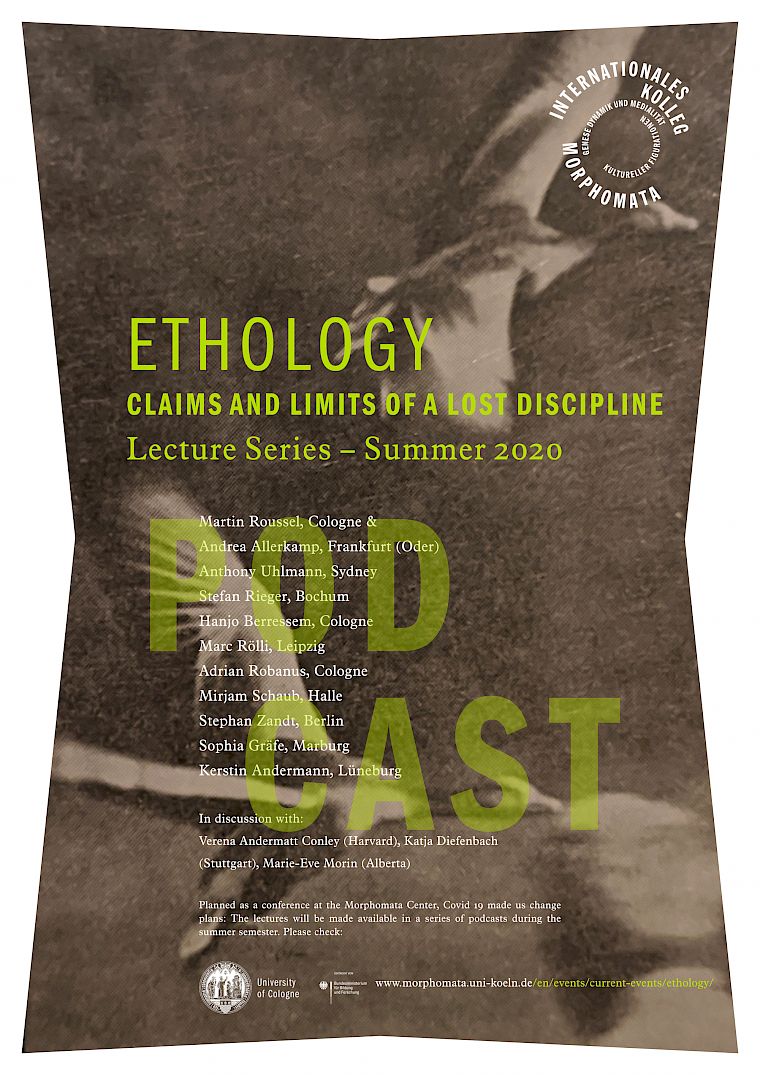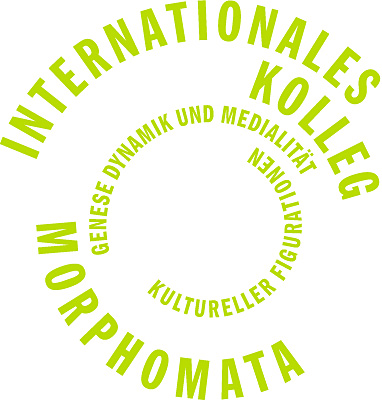For the Podcasts see below!
Podcast Series, Summer 2020
"Ethology – Claims and Limits of a Lost Discipline" was planned as a Cologne conference, in which an interdisciplinary assessment of the "lost discipline" of behavioral research between ethics and ontology, anthropology and its critique, between ecology and the history of science was to be carried out. The contact and travel restrictions in the context of the Corona pandemic have made new planning necessary: a series of podcasts – in audio or video format – replaces the conference. (You can read more about the conception of the ethology project in the "Flyer", which can be downloaded above.)
Regularly on Thursdays, around 5 pm, we will publish a new podcast at this location – from 7 May to 16 July:
7 May – Martin Roussel, Cologne & Andrea Allerkamp, Frankfurt (Oder)
14 May – Anthony Uhlmann, Sydney
20 May – Stefan Rieger, Bochum
28 May – Hanjo Berressem, Cologne
4 June – Marc Rölli, Leipzig
18 June – Adrian Robanus, Cologne
25 June – Mirjam Schaub, Halle
2 July – Stephan Zandt, Berlin
9 July – Sophia Gräfe, Marburg (cancelled)
16 July – Kerstin Andermann, Lüneburg
In discussion with: Kerstin Andermann (Lüneburg/Dresden), Verena Andermatt Conley (Harvard), Katja Diefenbach (Stuttgart), Marie-Eve Morin (Alberta)


